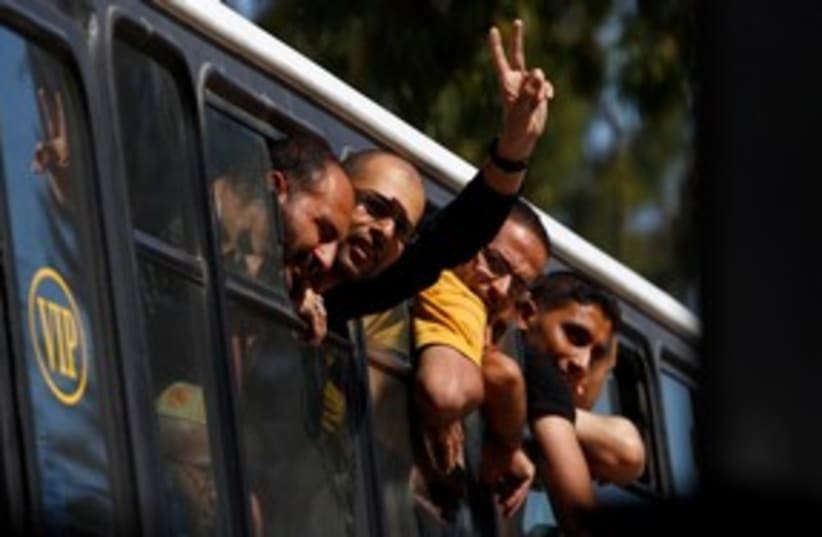RELATED:Untangling the Web: Covering Schalit's release, onlineEditorial: An age-old dilemmaEx-Shin Bet chief: Prisoner exchanges are bad for IsraelThe panel also said that Israel should avoid conducting large-scale prisoner swaps for abducted soldiers like the one it carried out in October in exchange for Gilad Schalit in which 1,027 Palestinian prisoners were released by Israel.The Shamgar Committee was established by Barak in July 2008 after the bodies of Ehud Goldwasser and Eldad Regev were returned to Israel in exchange for terrorist Samir Kuntar, four Hezbollah fighters and the bodies of nearly 200 Lebanese and Palestinians.The government held up publicizing the committee’s recommendations until after a deal for Schalit was reached. If accepted and approved by the security cabinet, the panel’s recommendations will limit the government’s ability to conduct such swaps in the future.In addition to former Supreme Court justice Meir Shamgar, the other two panel members were Tel Aviv University Prof. Asa Kasher and former director-general of the Defense Ministry Amos Yaron.Barak has said in the past that once Schalit was released, Israel needed to draw up a new policy regarding future swaps, making clear both to the enemy and the Israeli public what price Israel would, and would not, be willing to pay in the future.Barak has also expressed concern that prisoner swaps undermine Israeli deterrence.“We need to make it clear to the terrorist groups that abducting soldiers is not beneficial,” Barak has said.Last week, the IDF Southern Command warned of increased motivation among Palestinian terrorist groups to kidnap another Israeli soldier now that the Schalit swap has been completed.The IDF said that a number of tunnels being dug along Israel’s border with Gaza could be used one day to infiltrate Israel to kidnap a soldier.
Panel to recommend end to mass prisoner swaps
Shamgar C’tee expected to submit new proposals to Ehud Barak for handling abducted soldiers.

RELATED:Untangling the Web: Covering Schalit's release, onlineEditorial: An age-old dilemmaEx-Shin Bet chief: Prisoner exchanges are bad for IsraelThe panel also said that Israel should avoid conducting large-scale prisoner swaps for abducted soldiers like the one it carried out in October in exchange for Gilad Schalit in which 1,027 Palestinian prisoners were released by Israel.The Shamgar Committee was established by Barak in July 2008 after the bodies of Ehud Goldwasser and Eldad Regev were returned to Israel in exchange for terrorist Samir Kuntar, four Hezbollah fighters and the bodies of nearly 200 Lebanese and Palestinians.The government held up publicizing the committee’s recommendations until after a deal for Schalit was reached. If accepted and approved by the security cabinet, the panel’s recommendations will limit the government’s ability to conduct such swaps in the future.In addition to former Supreme Court justice Meir Shamgar, the other two panel members were Tel Aviv University Prof. Asa Kasher and former director-general of the Defense Ministry Amos Yaron.Barak has said in the past that once Schalit was released, Israel needed to draw up a new policy regarding future swaps, making clear both to the enemy and the Israeli public what price Israel would, and would not, be willing to pay in the future.Barak has also expressed concern that prisoner swaps undermine Israeli deterrence.“We need to make it clear to the terrorist groups that abducting soldiers is not beneficial,” Barak has said.Last week, the IDF Southern Command warned of increased motivation among Palestinian terrorist groups to kidnap another Israeli soldier now that the Schalit swap has been completed.The IDF said that a number of tunnels being dug along Israel’s border with Gaza could be used one day to infiltrate Israel to kidnap a soldier.